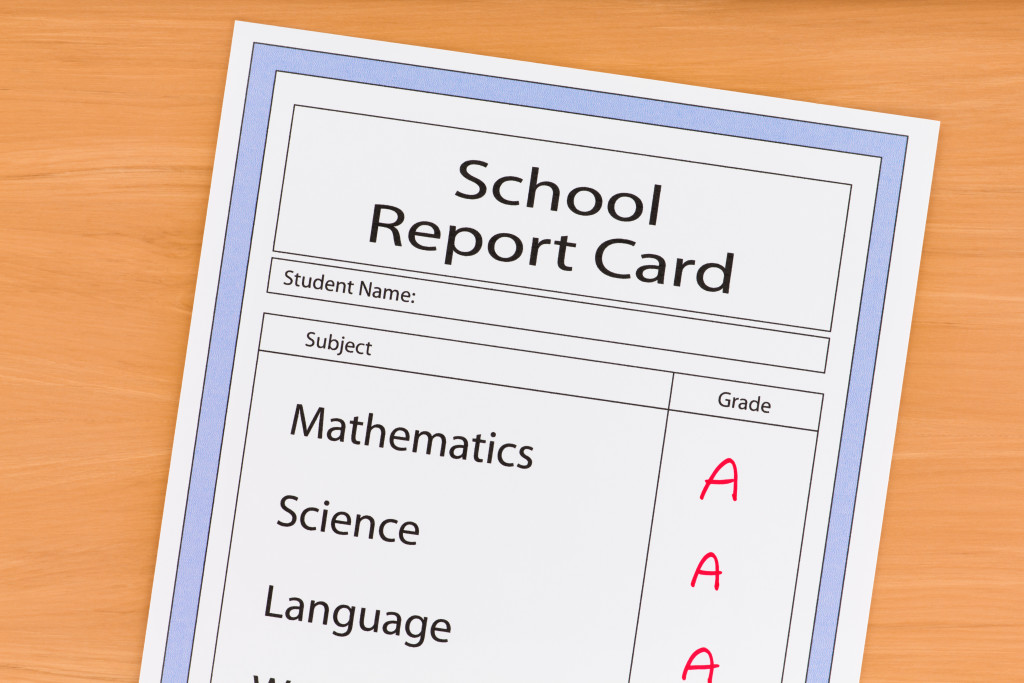March 1, 2019
The Top 5 Qualities You Should Be Looking For In A Tutor
Are you looking for a tutor? We look for them, too. And over the years we developed some processes and a handful of definite qualities that we look for in prospective tutors.
We base our processes on research and experience. Both research and experience have shown us that when looking for a tutor it is best to look for tutors who have the foundation of knowledge (the actual math, science, or Spanish knowledge) and also have the soft skills necessary to be able to connect with and relate to the student.
1. Soft Skills
We’ve found that over 50% of a tutors success is their ability to connect and relate to a student – it’s the teacher’s attitude, ability to communicate, and ability to connect that makes the biggest difference when it comes to education.
The bottom line is that your child is going to be much more likely to have a positive attitude towards learning and education if they are being assisted by someone that they like, relate to, and connect with.
2. Foundation of Knowledge
Of course, it is critical that a tutor not only talk the talk, but that they walk the walk. They need to know their stuff. We’ve interviewed tutors that didn’t – and of course we’ve interviewed tutors that did. It makes a big difference. It’s clearly visible. And we all know it.
3. Discipline (Preparedness)
We’ve interviewed tutors who weren’t prepared. We could tell. We’ve also interviewed tutors who brought lessons plans to the first meeting, who had everything written down and prepared. They were ready. And it showed. Hard work shows its colors.
These are just a few of the traits we look for in our tutors. We also look at who they are as person.
4. Integrity, Morals, Values
We ALWAYS ask ourselves, is this a tutor we would feel comfortable handing over the keys to our house? How about to our mothers house? Because tutors come into your home, it’s of critical importance that they have the highest levels of integrity. Whenever we are looking for a tutor – we look at their morality through both objective and subjective measures.
5. Their Life Path
We are much more inclined to hire a pre-medical student or a PhD mathematics student (who wants to teach) than we are to hire a tutor who just wants some extra cash. We look for tutors who have meaning and purpose behind their actions. We are looking for a tutor who has ambition and is willing to help and assist other people in achieving their dreams.
These are just a few of the qualities we look for.
We would be happy to give you advice on hiring and finding a tutor of your own. Or, if you like our style, you can always request a free session from one of our highly rated, regarded, and loved tutors.
August 1, 2018
Help Your Child Develop A Better Understanding of Math — 3 Major Topics All Teenagers Should Learn In High School Math
High school students learn best at their own pace, but that isn’t always possible when they’re thrown into a fast-paced math curriculum. As students work their way from algebra through calculus, they may begin to falter if the are missing fundamental knowledge about math. Math is all about building blocks, and if students want to develop a better understanding of math, it’s important that they feel confident applying past concepts to future problems.
That’s where a tutor comes in. You see, great math tutors are not only experts in the particulars of a subject – they’re trained to make sure high school students truly understand the concepts at a deeper level. The results are higher grades and even a spark of fun for students in high school math class.
Algebra, geometry, trigonometry and calculus are all unique in their own ways, and our tutors will help your high school student understand three major topics that are universal in all forms of math, and applicable to life after class.

Mathematics – Keep Reading To Learn The Three Skills Your Child Needs
Topic 1: A Better Understanding of Math: Relational Understanding
Did you know there are two types of understanding in math? Many students are adept at the first: instrumental understanding. They can take certain math rules and use them to solve problems – but they don’t necessarily know why the rule worked. This form of understanding relies on memorization more than application and can lead to struggles when problems become more complex.
The second form is relational understanding. Some may call it deductive reasoning. It necessitates a deeper understanding of rules, formulas and theorems so that students can continue to build on a solid foundation when things get harder. When students understand the why behind math, their worlds start to open up and they can make connections they may not have seen before.
Math tutors help with relational understanding because they have more time to work with students. In a classroom environment, students can begin to feel overwhelmed if they don’t fully grasp a concept, and fall behind as the class speeds on through to the next lesson. A student who understands the purpose behind math ideas and how to apply them to different concepts will be capable of solving any problem.
Topic 2: A Better Understanding of Math: Translating decimals, fractions and percentages
The entire course of algebra study hinges on understanding of decimals, fractions and percentages, and students need to be able to seamlessly transition between the three. But our brains don’t necessarily work that quickly. Think of yourself in the supermarket, trying to deduce a sale price – sometimes it takes some mental gymnastics to get to the answer. When high school students are up against time pressure on standardized tests, they need to perform at a high level, and fast.
The most common questions tutors will hear from frustrated math students is, “when will I ever use this in real life?” From statistics class in college to filing taxes to taking measurements on a home building project, decimals, fractions and percentages are perhaps the most relevant concepts to the real world beyond the classroom. All high school students should know how to speak the language of these numbers, and math tutors can make them proficient.
Topic 3: A Better Understanding of Math: Calculator proficiency
Every high school student has a computer in their hands at all times nowadays, but not all of them understand the right inputs to solve math problems. Or, if they do, they understand them at an instrumental level and their ability to manipulate formulas tops off at a certain point.
Calculator learning is crucial in high school math. Machines are capable of so much, but they can’t do all the work for your student. Our tutors focus first on the concept, then on how to replicate the concept in digital form. We want students to be confident in more than just knowing where the right button is – we want them to grasp exactly why they’re pressing it to solve a problem.
June 1, 2018
Books For Success — Boost Your Child’s Grades
Books For Success. What books help your child succeed? Read below to find out!

Books For Success — Reading The Following 3 Books Can Help Your Child Succeed
As a tutor, I’ve discovered that many children have low grades because of their poor mindset.
I’m a big believer in books. I give books to most of my clients. Why? Because they have the power to transform someone’s life.
This blog article is about the 3 books for success—to help boost your child’s grades.
Here are the most important books for success that your child should be reading, now:
-
Books For Success — Mindset
The “low effort syndrome” is something many parents are familiar with. Why does it happen? New research shows that it happens because during the teenager years students feel as if everyone is trying to quantify them. Grades. Papers. Tests. Students, at this age, naturally resist. “You want quantify me!” They seem to shout. “I won’t put it any effort at all— then you can’t test my ability. Ha!” (Clearly, that’s not the best, most useful, mindset in the world.)
The way to get around this, I’ve found, is to make students aware of this. I tell my clients why they are acting the way they are. And I think this insight gives me credibility. It builds trust because it shows I understand who they are and why they do what they do.
Teenagers, like anyone, want to be listened to. They want to be understood. They want to be heard and known.
And I think it’s possible to hear them—while still encouraging them to improve.
This book teaches students that they can learn anything. It teaches them that if they try, and use different strategies, they can succeed at any subject.
-
Books For Success — How to Win Friends and Influence People
This book is a classic. Another thing I’ve found in my research and time spent with youth, is that kids who have the “low effort syndrome” are usually lacking interpersonal skills. They might be difficult to deal with themselves—but often they don’t know how to deal with difficult people.
They don’t understand how to make a nit-picky teacher like them. Instead of being likable and winning a teacher’s favor, youth with the “low effort syndrome” are most likely to rebel so that they can look cool in front of their peers.
This can all change by reading a few good books.
-
Books For Success — How Children Succeed
How do children succeed? Recent research shows that more than anything else, having grit is what makes children succeed.
Grit is a personality trait that allows a person to pursue and accomplish their goals despite repeated and consistent setbacks and failures.
In life and education alike, challenges are going to come. That’s why it’s imperative for a child to develop grit.
What researchers are finding matters even more than cognitive skills … are non-cognitive characteristics and qualities such as: persistence, self-confidence, grit, curiosity, and self-control.
This book, and others, will show your child how.
— Eric Earle
P.S. — At Tutor Portland we have tutors who help in common everyday subjects. But our tutors also serve as mentors. We’re here to inspire students, to connect with them on a level deeper than simply school, academics, and grades. We’ve found that this deeper connection helps students improve both academically and personally.
May 1, 2018
Why Hire A Tutor In Portland?
Some Portland Parents Ask Me: Why Should I Hire A Tutor?

One Reason To Hire A Tutor Might Be: Better Grades!
I’ve spoken with many Portland parents who are interested in hiring a tutor for their child. They often ask me about the benefits of tutoring. What results should they expect to see for their children?
Research On The Benefits of Hiring A Tutor
In 1982, a young researcher conducted a meta-analysis of over 60 studies on tutoring. This means, he took the results of over 60 studies and analyzed them to see the outcomes of a wide-range of studies.
The Results?
- Tutored Students Outperformed Peers On Examinations
- Tutees Expressed More Positive Attitudes Towards School Subjects
- Tutoring Was Especially Beneficial For Students Learning Mathematics
Here is an article from the National Education Association that further discusses the benefits of academic tutoring.
(Why was math tutoring so beneficial?) Math is a linear subject. That means that what you learned yesterday (last year or last class) effects what you are learning today. So, if you fall behind in math, you’re in trouble. That’s where tutors can make a huge difference. Tutors can help Portland students rise above their difficulties and master new skills.
Academic And Cognitive Improvements From Working With Academic Tutors
- Tutors Help Students Raise Their GPA, Score Higher On Tests, and Better Understand Material
Social And Behavioral Benefits From Working With Academic Tutors
But tutors also bestow another benefit upon tutees: they help them socially.
- Tutors Help Students Develop What Psychologists Call A Self-Concept and Social-Concept
- (And further studies show that Self and Social Concepts are Correlated With Improved Academic Performance.)
- Tutored Students Show A Decrease In In-Class Disruptive Behaviors
- Tutored Students Report A Greater Degree Of Internal Responsibility For Their Own Achievement.
- Tutoring Has Also Been Shown To Improve Students’ Ability To Handle Constructive Feedback
That is pretty remarkable. Most Portland parents I talk too are in it for immediate results. They want to see their child’s grades go from Cs to As. And I understand that. But what’s incredible to me is the constructive power that tutoring can have on a student both socially and behaviorally.
If you’re interested in learning more:
Here’s an article that discusses several benefits to tutoring.
And if you live in Portland, Oregon, you can also take a peek at our tutors or our subjects, if you want.
— Eric Earle